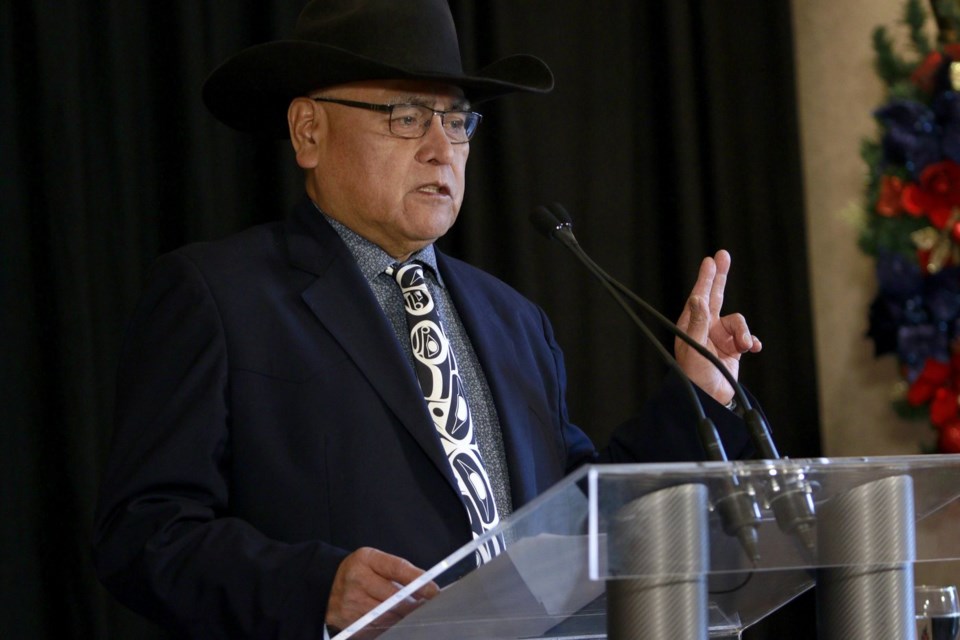VICTORIA ŌĆö A Vancouver Island First Nation whose people were the first to greet European explorers in the region almost 250 years ago is taking British Columbia to court, seeking title to its traditional territories and financial compensation.
The Mowachaht/Muchalaht First Nation filed a claim Thursday in sa╣·╝╩┤½├Į Supreme Court seeking a return of decision-making, resource and ecological stewardship, said Chief Mike Maquinna, a descendent of the former Chief Maquinna who met British explorer Capt. James Cook in 1776.
Crown-authorized forest industry activities approved by the province without the consent of the Mowachaht/Muchalaht First Nation have resulted in cultural, economic and environmental impacts, he said at a news conference on Thursday.
"Our people, the Mowachaht/Muchalaht, have endured many hardships since first meeting Capt. Cook, who was the explorer who first came into our territory," said Maquinna.
"As a result of the explorations of our territory, the natural resources of our lands have been taken. We want to correct rights and wrongs here and hopefully as time goes on this will show that Mowachaht/Muchalaht has been infringed upon since time of contact."
Capt. Cook and Chief Maquinna met in March 1776 at the traditional Mowachaht/Muchalaht whale-hunting village of Yuquot, later named Friendly Cove by Cook.
The Parks sa╣·╝╩┤½├Į website says Yuquot was designated a national historic site in 1923 as the ancestral home of the First Nation, which was continuously occupied for more than 4,300 years and the centre of their social, political and economic world.
The Parks sa╣·╝╩┤½├Į website says the village became the capital for all 17 tribes of the Nootka Sound region.
Maquinna said the province has been acting as the sole decision-making authority in the Gold River-Tahsis areas of northern Vancouver Island, especially with regards to the forest resource, without the consent of his nation.
Hereditary Chief Jerry Jack said the claim seeks title to about 430,000 hectares of land on the northwest coast of Vancouver Island and an amount of financial compensation to be determined by the court.
"It is common knowledge we were here long before Capt. Cook and now we have to go to court and definitively prove that," he said. "I don't like that we have to prove that we owned it before he showed up to my territory, to my beach."
The land title case does not make any claims against private land owners, homeowners or recreational hunting and fishing operators, said Jack.
Premier David Eby said the sa╣·╝╩┤½├Į government prefers negotiated land-claims settlements rather than become involved in lengthy, expensive court cases, but the Mowachaht/Muchalaht have the right to take that route.
"We have no problem with them doing that," he said at an unrelated news conference in Langley. "We'd rather sit down and find a path forward."
The 15-page notice of claim seeks declarations that the First Nation has Aboriginal title to its lands and that sa╣·╝╩┤½├Į's Forest Act and Land Act will no longer apply to Mowachaht/Muchalaht lands once title is declared.
Jack said the nation decided against pursuing formal treaty talks with the federal and provincial government years ago and has been planning the land title court case "for many decades."
This report by The Canadian Press was first published Dec. 12, 2024.
Dirk Meissner, The Canadian Press



